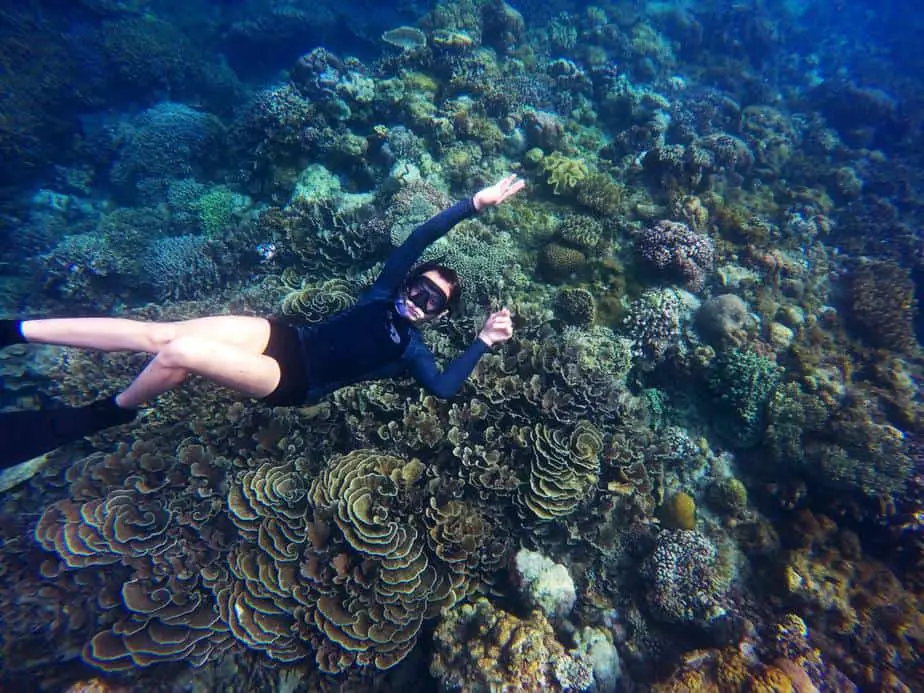At a glance, snorkeling seems like such a gentle, relaxing activity that no one would not suspect it is causing damage to the coral reefs. Indeed, inexperienced snorkelers are responsible for doing irreversible damage to coral reefs. To be fair, most are doing it unintentionally with no malice whatsoever, however the damage is being done regardless.
Snorkeling while on vacation can have a negative impact on the coral reefs due to the neglect and carelessness many snorkelers show. With that said, there are ways you can do some eco-friendly snorkeling, and it just requires that you do some research beforehand. The tourism industry as a whole has had a negative effect on coral reef health, and snorkelers are one group contributing to its decline. We need to do our part to conserve the reefs while snorkeling.
Thankfully, over the years more and more people are becoming invested in the conservation of the coral reefs. Hopefully you can be an ambassador for change as well. In this article, we will discuss the ways snorkeling is damaging coral reefs, and how we can take action to prevent this from happening further.
What are coral reefs?
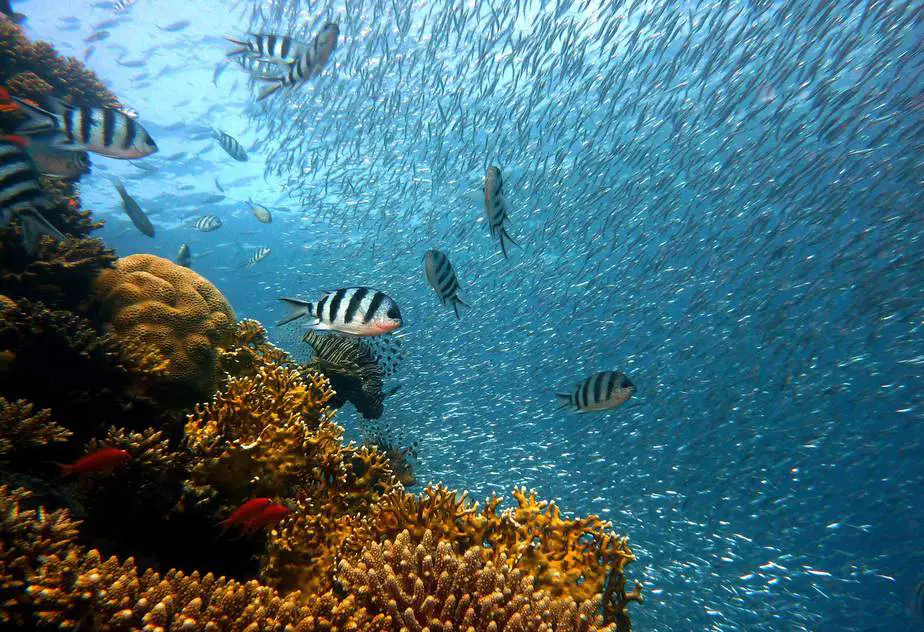
Coral reefs are some of the most vibrant and awe-inspiring sights you can see in the underwater world. In addition to being a sight to behold, the reef is a habitat for a plethora of fish species and other marine life such as sea turtles. It is here that snorkelers can observe the abundance of life residing in the ocean from their position at the surface.
The coral reef is one of the most valuable ecosystems on the planet, sustaining untold numbers of marine life. Reefs are nursery grounds for fishes and invertebrates which helps to repopulate the ocean. They also act as a buffer against erosion in coastal areas.
When nature thrives, so too does humanity. Coral reefs are a major source of food and income for local communities – both from tourism and fishing. They also provide some protection for coastlines from rough waves and storms. In case it isn’t obvious at this point, both marine life and humans benefit from the continued survival of the coral reefs.
How do snorkelers affect coral reefs?
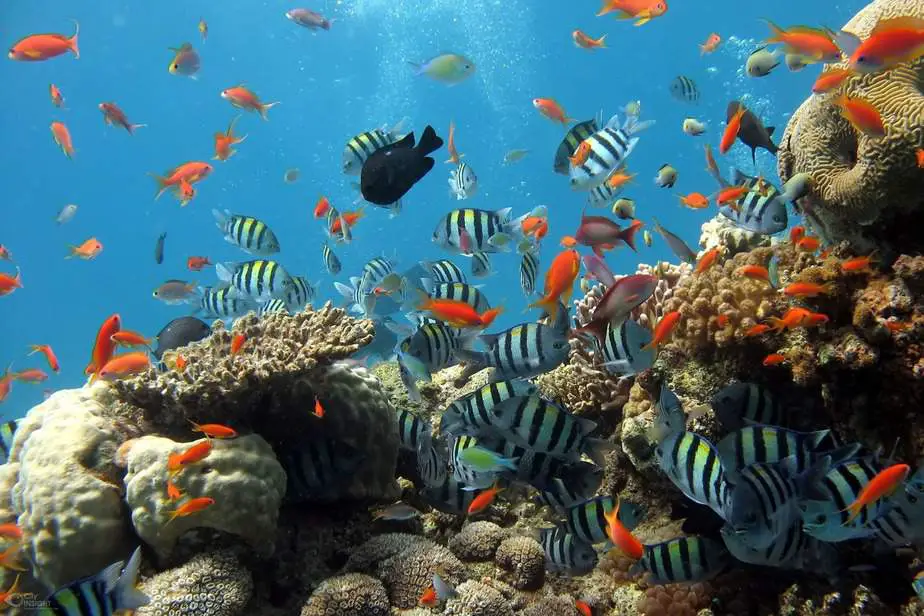
First, let’s be clear: vacationing snorkelers and scuba divers are not the primary reason coral reefs are declining all over the world. That sinister award goes to global warming and pollution. Still, tourism is certainly contributing to the decline of coral reefs, and snorkelers are included in this group.
Despite this accusation, we understand that most snorkelers aren’t doing it intentionally, or else they haven’t been informed about the impact their actions have on the reefs. It’s not like someone spends hundreds or thousands of dollars, travels thousands of miles, overcomes any fear they might have of the water, just so that they can deliberately ruin the coral reefs.
It’s quite clear that the reason for this damage is due to ignorance or accidents. Unfortunately, too many people are ignorant of the negative impact they have whenever they kick up sediment, break branches accidentally or intentionally for a souvenir, wear sunscreen that is not reef-friendly, and so on.
Additionally, it does not help the ocean conservation cause when some malicious players in the tourism industry set up tourist destinations to serve snorkelers without properly informing the tourists how they can snorkel in an eco-friendly way. All they care about is the short-term pursuit of money, not the long-term effects of how coral reef damage will affect everyone.
The two main drivers of coral reef damage are environmental damage and physical damage. Snorkelers can affect both by not wearing reef-safe sunscreen and carelessly kicking with their fins.
Coral reef damage is such a major issue because of how slow they grow. Thus, any damage done to the reef may take years to recover from, if it even does at all. Plus, coral reefs are so sensitive that even kicking up sediment around them can cause them to eventually wither and die. Let’s go over the most common ways snorkelers damage the coral reefs below.
Physical contact
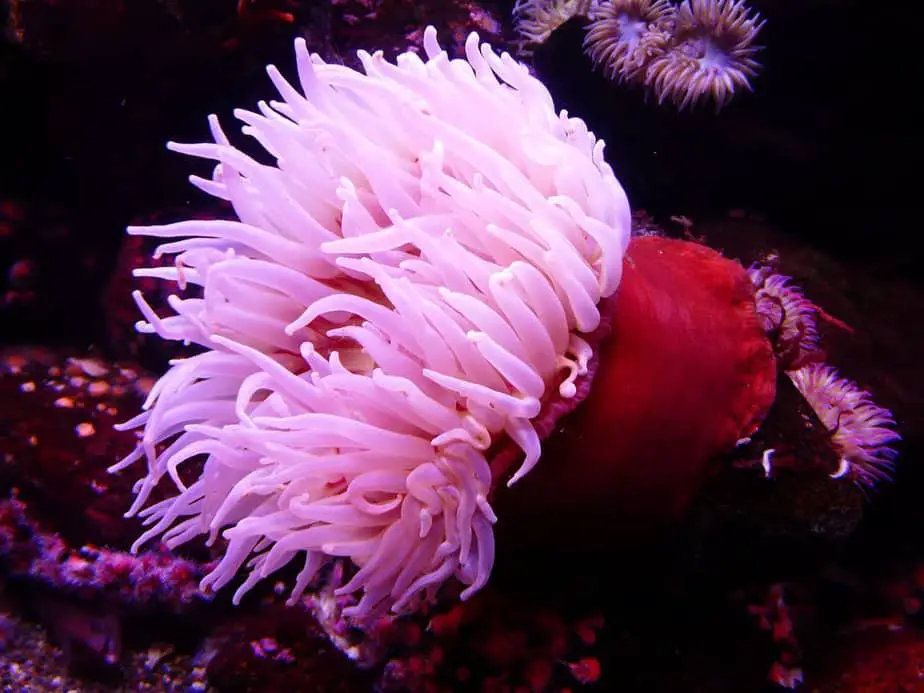
Many inexperienced snorkelers will make physical contact with corals, whether it is intentional or accidental. Even something as gentle as touching coral with your bare hands is enough to kill delicate coral polyps because the natural oils on your hand can inhibit growth even if the coral seems undamaged.
Severe breakage can be caused by snorkelers accidentally kicking the branch with their fins, dragging their gear through the water, or wading in and out of the water. Some snorkelers intentionally break off coral branches to keep as a souvenir. Unfortunately, the damage caused by these snorkelers can cause the corals to die.
When you are in the water, be careful of where you are standing, stepping, or kicking. When walking, make sure there are no corals where you are about to step. When kicking, make sure there is enough distance between you and the corals. As you can see, coral is very brittle, and your actions can lead to their destruction and reduction..
Sunscreen
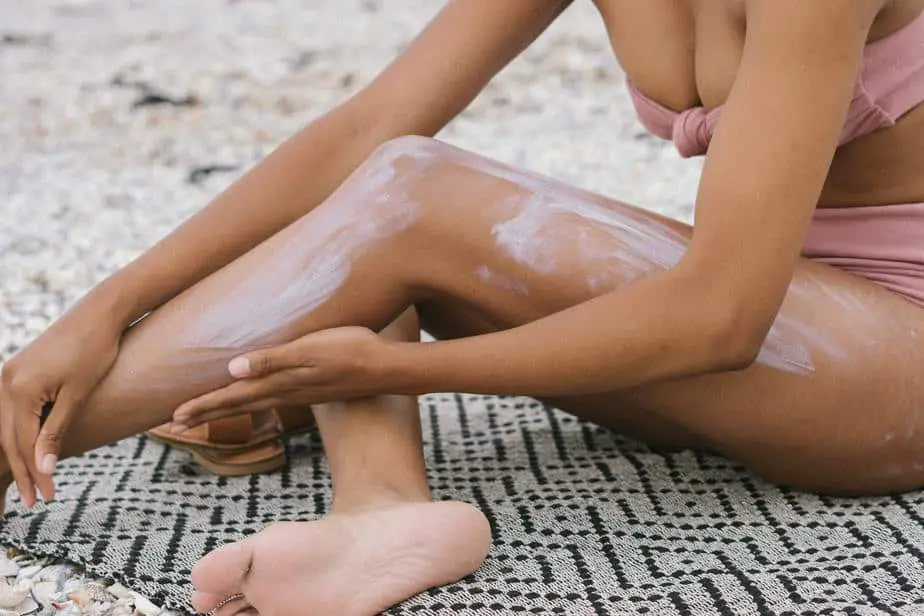
There is a phenomenon observed in corals where they turn white, as if all of their usual vibrant colors had been drained out. This is known as coral bleaching and it is a sign that the coral is in distress or dying. The reason this occurs is because there is some chemical in the water that is harming it, causing it to turn white.
It was a mystery before, but we now know that the chemicals found in most sunscreens are harmful to corals and other marine life. If you aren’t sure which chemicals in sunscreen are dangerous, then take a look at the aptly named HEL List to see if your sunscreen contains any of the chemicals listed.
Even though many sunscreens are bad for the environment, forgoing sunscreen is not the solution either. If you need any convincing as to why you need to wear sunscreen, we highly recommend you read this highly entertaining yet informative article by Mary Schmich from the Chicago Tribune. It truly is a classic for the ages, and its advice still rings true over two decades later.
So what then is the solution? You need to specifically wear reef-safe sunscreen. These products can go by many names depending on how it’s marketed. You might see words like eco-friendly, sustainable, reef-safe/friendly, green, and vegan. Unfortunately, seeing those words is not a guarantee that the product is actually reef-safe.
The only surefire way to know if the sunscreen is reef-safe is to read the label and make sure the ingredients listed are not found on the aforementioned HEL List. Additionally, sunscreen that uses zinc oxide or titanium oxide as their primary ingredients are more coral-friendly than other sunscreen.
We’ve barely even scratched the surface on this topic, and we recommend you read our article on reef-safe sunscreen to get more in-depth information. Make sure the sunscreen you wear not only protects you, but also the environment you’ll be snorkeling in!
Feeding the marine life
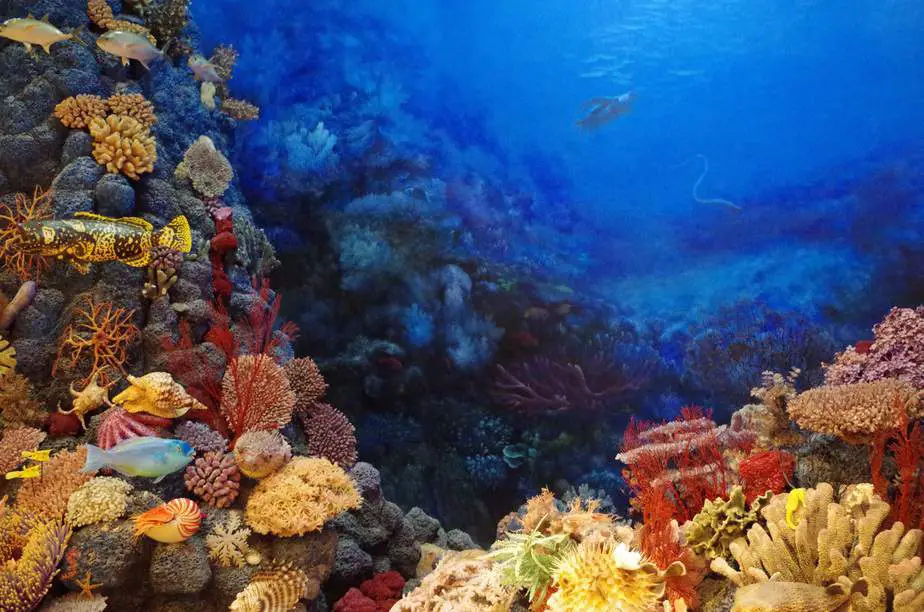
You’ll often see signs instructing beachgoers not to touch or feed the fish, but people often take that as a suggestion and not a hard rule. Unfortunately, one of the outcomes of ignoring this rule is that it impacts the fish’s natural behavior in such a way that can harm the coral reef.
By feeding the marine life instead of letting it scavenge or hunt for its own food, the marine life are conditioned to approach humans because they think all humans will give them food. Snorkelers may sometimes be approached by hungry fish that may or may not be aggressive. This is not only dangerous, but also bad for the environment.
Marine life that would normally be getting their food source by cleaning the reef of particles and algae instead spend their time searching for humans. This neglect to maintain the environment’s status quo will cause the corals to die (not that the marine life has any concept of what’s happening, but humans certainly do). Stop feeding the fish!
Kicking up sediment
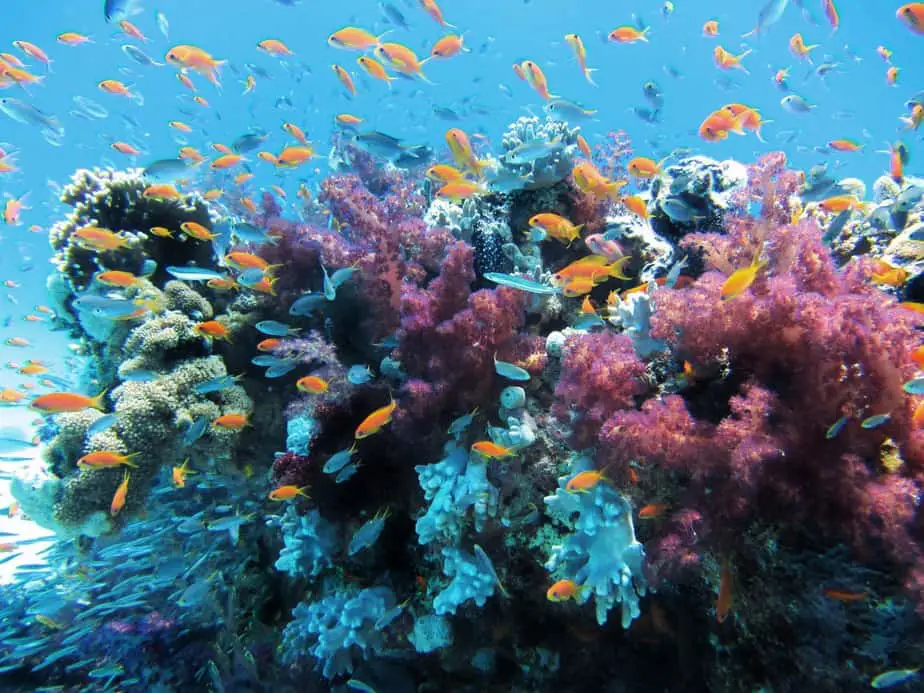
Even if you do not make physical contact with the corals, we have already established that your close presence can be enough to be harmful if you’re wearing the wrong sunscreen. Well here’s another example to worry about: kicking up sediment.
Ocean-goers who are not very careful can kick up clouds of sediment with their fins. When the sediment lands on the nearby corals, it can block the sunlight that zooxanthellae (the symbiotic algae that live in and nourish the corals) needs for photosynthesis.
When you are walking or snorkeling in shallow waters, be particularly careful not to kick up a storm. We recommend practicing your finning technique in a pool before snorkeling in shallow water. That way, you can ensure you’re nimble enough to kick such that you a) avoid kicking corals, and b) avoid kicking up sediment.
Snorkelers who are also doing underwater photography need to be extra careful. Carrying all of the extra camera gear makes you bulkier and more likely to come into contact with corals. On top of that, your desire to get close-up shots can make you more likely to touch the corals or kick up sediment accidentally.
Irresponsible boating
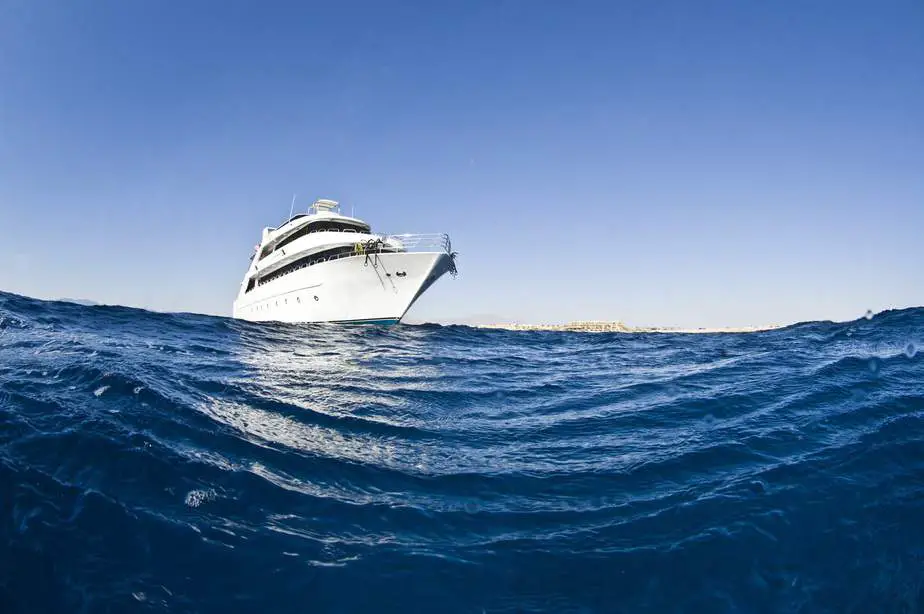
If you’re snorkeling from a boat, try to research the boat operators beforehand that are known for ocean-friendly practices.
For instance, boats that drop their anchors without any regard for the reefs beneath them can cause a lot of permanent damage. Ideally, they will use mooring buoys instead of an anchor, or they will determine that there is nothing underneath them where they are dropping the anchor.
The boat operators must also be careful with their waste disposal. The waste products dumped from snorkel boats or pontoons can pollute the waters and cause coral bleaching.
Garbage that is disposed of accidentally or intentionally, such as human waste, oils, cleaning products, and toilet paper are all detrimental to the ocean, particularly in enclosed areas like bays and lagoons where water circulation is limited.
Furthermore, when there are numerous boats visiting a snorkeling site, they will cast a large shadow over the reef which blocks the sunlight that the zooxanthellae need to help the coral survive. Busy areas where boats keep coming and replacing the ones that just left can cause the corals to not get enough sunlight over the course of the day.
These examples of irresponsible boating described above can leave long-lasting negative effects on the ocean reefs, particularly in areas where there is high boat traffic. The coral can take years to recover from this damage, if ever.
Are there any benefits of snorkeling tourists?
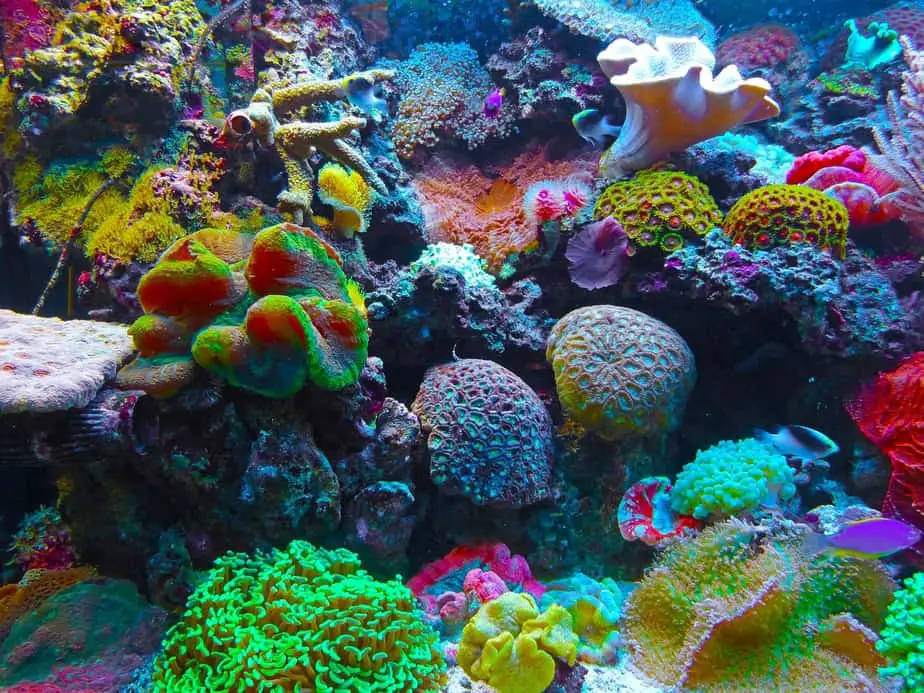
It seems that, from the examples given above, that the tourism industry, snorkelers included, are a net detriment to the coral reefs. Is it all doom and gloom? Not necessarily.
There is a silver lining to everything. The tourism industry can be harmful, however it also has the potential to be a net positive if more people are educated on this topic. Snorkelers and divers who have witnessed the majesty of the coral reef first hand are more likely to feel strongly about ocean conservation.
They can pressure hotels and tour operators to adopt more eco-friendly practices. Additionally, vendors who see how happy the tourists are at the sights they are experiencing have an incentive to keep the reefs healthy and vibrant.
Obviously, tourism as an industry can be beneficial as a source of income for many communities. Thus, the locals have an economic interest in preserving the reefs and educating tourists on reef-safe practices.
Done correctly, snorkeling can be a reef-friendly, profitable industry that can benefit all as long as the parties responsible are interested in preserving the reef.
When everyone’s goal is ocean conservation, then they can put an end to short-term harmful practices like overfishing or destroying reefs for souvenirs and things of that nature.
How can snorkelers help conserve the ocean reefs?
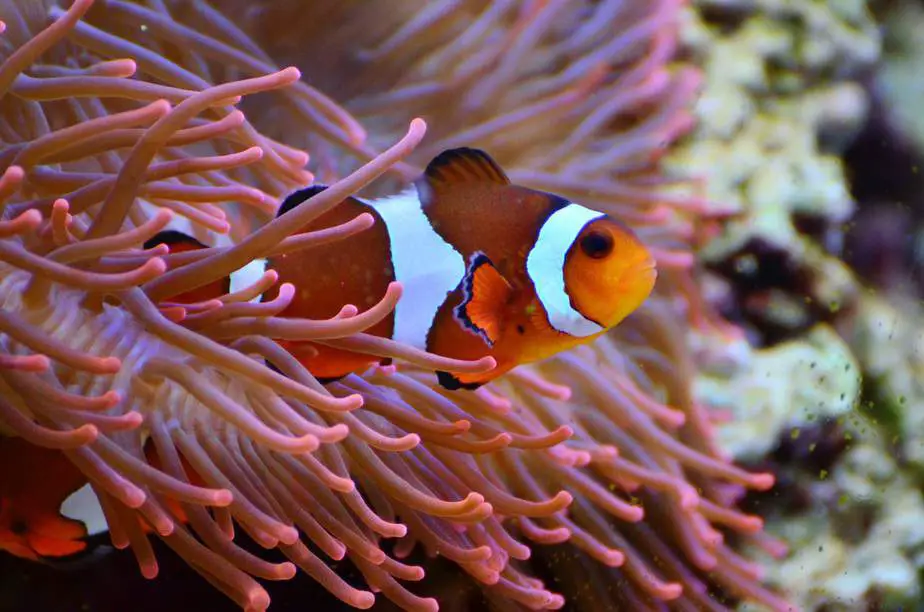
First of all, just being made aware that snorkelers are damaging the reefs with their neglect can potentially cause a change for the better. Responsible snorkelers will ask questions like: Why is ocean conservation important? How are snorkelers damaging the coral reefs? This line of questioning will help them to eventually see the truth – that the coral reefs are dying, and it’s in our power to save it.
Please, share the message that we ought to be careful around the coral reefs. Don’t wear toxic sunscreen or break branches off corals for souvenirs. Don’t be afraid to speak up when someone is ignoring these basic rules and behaving without care for the coral reefs. Often, people are not malicious; they simply don’t realize how important corals are, and that they are living creatures as well.
If you are snorkeling at a site and you notice a lot of garbage floating around, consider bringing a mesh bag with you to remove any garbage you come across. If everybody that came to the ocean took back just one piece of trash one their way out, the oceans would be a much cleaner place.
There are many other ways you can help preserve the ocean reefs which we describe below.
Don’t interact with the reefs or other marine life
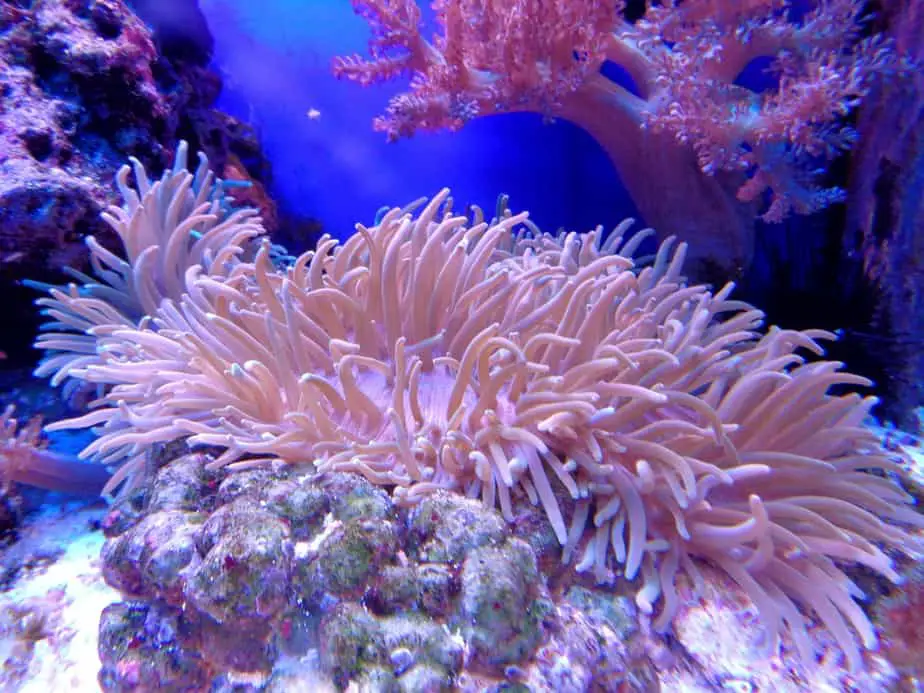
The more vibrant and unusual a reef is, the more enticing it is to snorkelers to want to get real close, perhaps even touch it or break off a piece for a souvenir. This is a terrible practice, and you should warn others not to do it either. Keep your hands to yourself.
If you need some incentive, then realize that corals can sting you much like the thorns of a rose can. Also, if you happen to crash into one for whatever reason, it can pierce through your wetsuit and sting or cut you badly. So instead of framing it like the corals are the victims, perhaps it’d be more effective to think of them as a potential hazard to you.
As a snorkeler, for your own safety and the coral reefs’, you should evaluate your snorkeling abilities honestly so that you are snorkeling in the appropriate areas under safe conditions. For instance, if you’re not a strong swimmer and need to stand frequently, then be very careful about where you stand because reefs are often crushed this way.
Ironically, perhaps you should head to slightly deeper water and wear a buoyancy aid to assist you so that when you’re resting vertically, your fins aren’t touching the sea floor where the corals are.
Additionally, keep sufficient distance from the corals so that you don’t accidentally touch them with your body. Keep in mind the amount of distance you need when moving from a vertical position to a horizontal position. Also factor in the extra length that your fins add when kicking.
Don’t kick up sediment
When you’re snorkeling in shallow waters, be very careful about kicking up sediment. Try to avoid stirring up sand or silt with your fins. If the sediment settles onto the reef, it can harm them by blocking the sunlight. Consider wearing a buoyancy aid so that you can stay afloat most of the time and not need to touch the bottom.
In fact, if you know you’re not the greatest swimmer or snorkeler and that’s why you’re in the shallow waters, we applaud you for your intentions, however your actions may cause harm regardless. Consider taking some snorkeling courses where the instructor will teach you all of the best practices before you head out onto the reef on your own.
Enter and exit the water at suitable locations
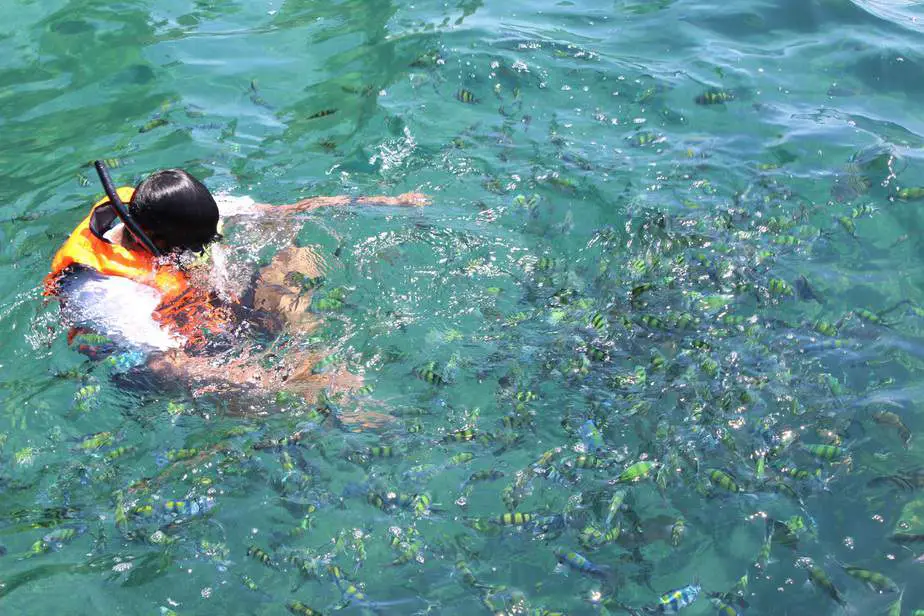
When you’re snorkeling from the shore, try to find a suitable entry and exit point where you will not damage any reefs by walking through them. Many coral reefs are destroyed by irresponsible shore divers, surfers, and snorkelers dragging their equipment through the water and damaging the reef along the way.
At most locations, there should be jetties built over the reef so that you can enter the deeper water without hurting the reef along the way. These facilities are crucial because they can help snorkelers and divers get where they want to go more conveniently while preserving the reefs, a win-win for everyone.
If there aren’t any jetties where you’re at, and you can’t swim out across a reef, and your only options are to either walk on the reef or go to another location to snorkel, please find another place to snorkel.
Be wary of the water conditions
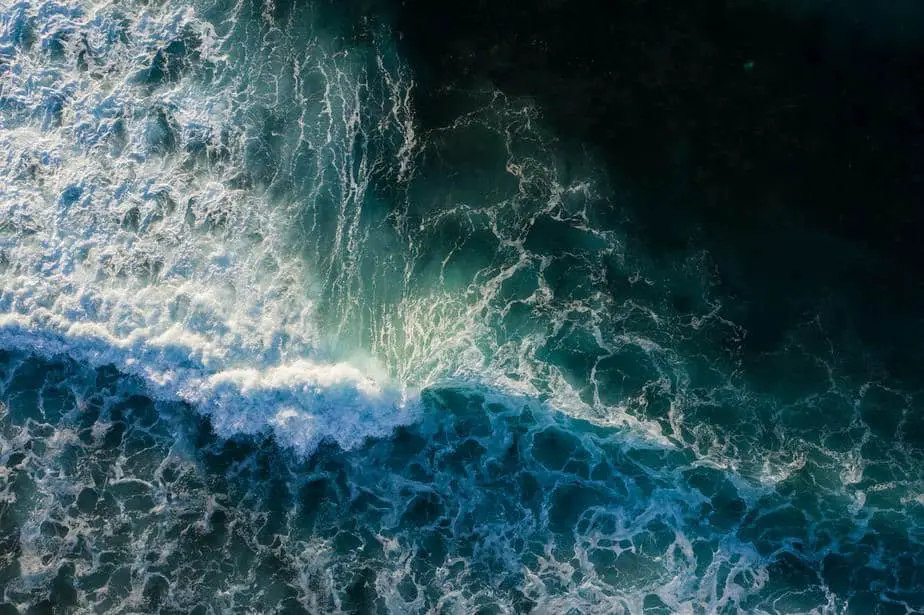
Snorkeling sites that have strong waves, currents, or swell are dangerous. Even if you are a responsible and eco-conscious snorkeler, you may come into contact with the reef accidentally if the water is strong enough.
Not only is this damaging to the reef, it’s generally dangerous for the snorkeler as well. The coral reefs can sting or cut you. Also, what if you’re pushed onto rocks, or pushed far out into the sea? It’s not a good idea to snorkel in rough water conditions.
Sometimes snorkelers head out into the water when it’s calm, but due to the changing conditions, find themselves caught in turbulent water. This is why it’s important to wear a snorkel vest, and to research the suitability of conditions before entering the water.
Check the local weather forecast so you have more data points to work with. Remember that forecasts aren’t perfect and what you thought was going to be a sunny day might end up being something else entirely. Ask the locals or a dive shop employee for advice regarding where and when to go snorkeling.
Wear environmentally-friendly sun protection products
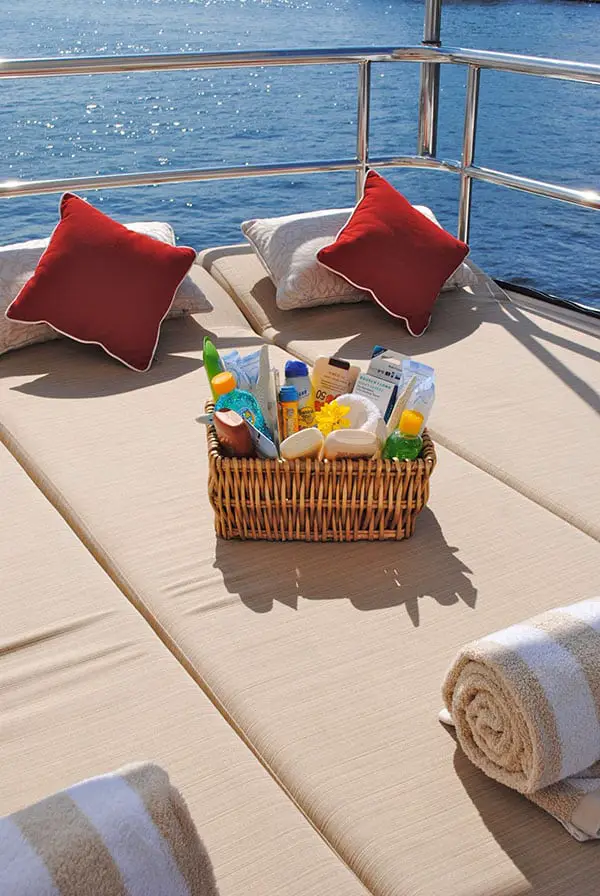
Sun protection products are absolutely key if you plan on spending a day outdoors. You don’t want to end up looking like a tomato after a few hours in the sun. It not only isn’t a good look but it’s incredibly painful to be sunburnt. You’d be making the wrong kinds of memories on your vacation.
Most people know to wear sunscreen, but as we mentioned above, most sunscreen products actually contain harmful chemicals that will wash off into the water and poison the reefs. You must specifically look for reef safe products, and even then, check the label for ingredients that are listed in the HEL list. If you find any, then that sunscreen is not truly reef safe.
After you’ve picked an eco-friendly product, there are more considerations to be made. Applying sunscreen to your entire body is time-consuming and you will aggressively use up your sunscreen. In order to save time and money, you should consider wearing a rashie or shorty. In case you’re unfamiliar with the slang, that means a rash guard or short wetsuit.
Depending on how much coverage you want, you might need a full rash guard or full wetsuit. These pieces of clothing are made of UV resistant material, and the more skin is covered by them, the less sunscreen you need to apply (only to exposed areas).
Also keep in mind that sunscreen must be re-applied at certain intervals. Most sunscreen should be reapplied every 30 minutes in the water, but some water-resistant sunscreen may last as long as 90 minutes in the water.
You should apply sunscreen 30 minutes before you expose your skin to the sun. This gives the sunscreen some time to get absorbed into your skin. If you head out too soon, especially into the water, then there is a high possibility that the sunscreen will be rubbed off by clothing or washed off by the water before it can provide any protection.
Use a responsible operator and report irresponsible ones
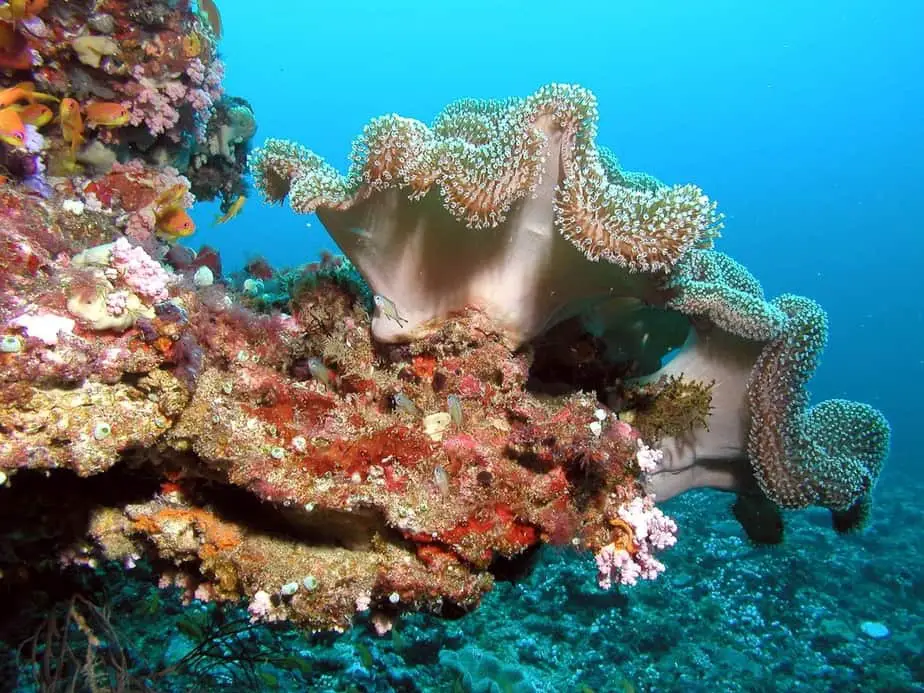
Even if you’re environmentally-conscious, perhaps your snorkel operator isn’t. As part of your research, we recommend looking into your operator’s view on ocean conservation. Are they part of any organizations that focus on coral reef conservation? Do they have mission statements claiming to protect the reefs?
Another thing to look out for is whether they use mooring buoys instead of anchors. Anchors are highly destructive to the coral reef and any boats using them near corals are not doing the reefs any favors.
Don’t be afraid to ask questions if something appears to be wrong. If necessary, please report these violations to the authorities.
What does a healthy coral reef look like?
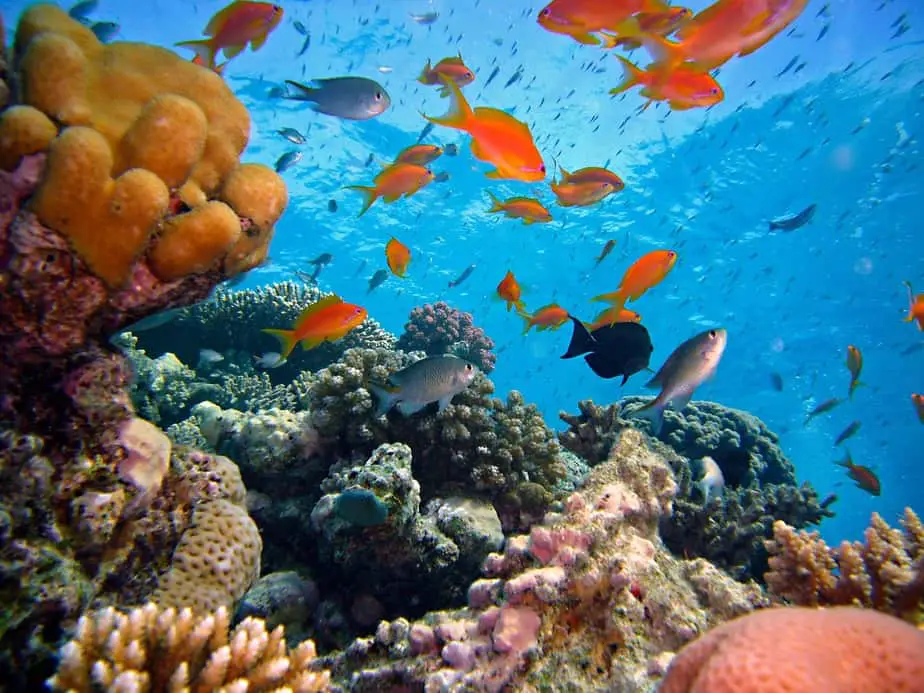
We’ve spent the majority of this article focusing on the dark side of the tourism industry. However, tourism is not inherently bad. During non-COVID times, it is a way for local communities to generate a healthy profit while providing tourists with the experience of a lifetime. When the rules are being followed and things are going as they should, the coral reefs are a sight to behold.
A healthy coral reef will naturally have vibrant colors and be filled with an abundance of marine life. The coral cover will be abundant, with barely any worn patches. Your eyes will be filled with a variety of colors except the color white, because no corals will be bleached. The corals are also a habitat for a variety of coral species
There should not be empty patches or algae covered areas. If there is, it’s a sign of high pollution levels or overfishing. The fish should generally leave snorkelers alone and mind their own business. When the fish are begging snorkelers for food, that means they aren’t removing algae or cleaning the reef of particles. Ideally, there should be a large number of surgeonfish and parrotfish keeping the algae in check.
Parting words
As you can see, snorkeling can be a greatly beneficial activity for tourists, the local community, and even the coral reefs themselves if everyone is working together to help preserve it. Unfortunately, the masses and local businesses are generally ignorant or nonchalant about the plight of the coral reefs.
When coral is damaged, it can take several years for it to regrow. In the worst case, the coral reef can be permanently damaged, never to come back. It is estimated that, since 2016, over half of the coral in the Great Barrier Reef has died due primarily to climate change. Snorkelers who visit the Great Barrier Reef need to do their part to protect it. However, just because climate change is the biggest threat doesn’t excuse the tourism industry.
We see dramatic loss of coral reefs like this all over the world. The reefs are becoming so polluted or degraded that they struggle to support healthy ecosystems or provide other benefits. As we mentioned already, local communities and businesses rely on fishing and the tourism industry to support their local economy.
While one person individually may not be able to make much of an impact, if more people took it upon themselves to encourage education and responsible snorkeling, then at the very least the snorkeling industry can become sustainable. We should all play our part in preserving the reefs, because our planet and many families will suffer greatly without it.

